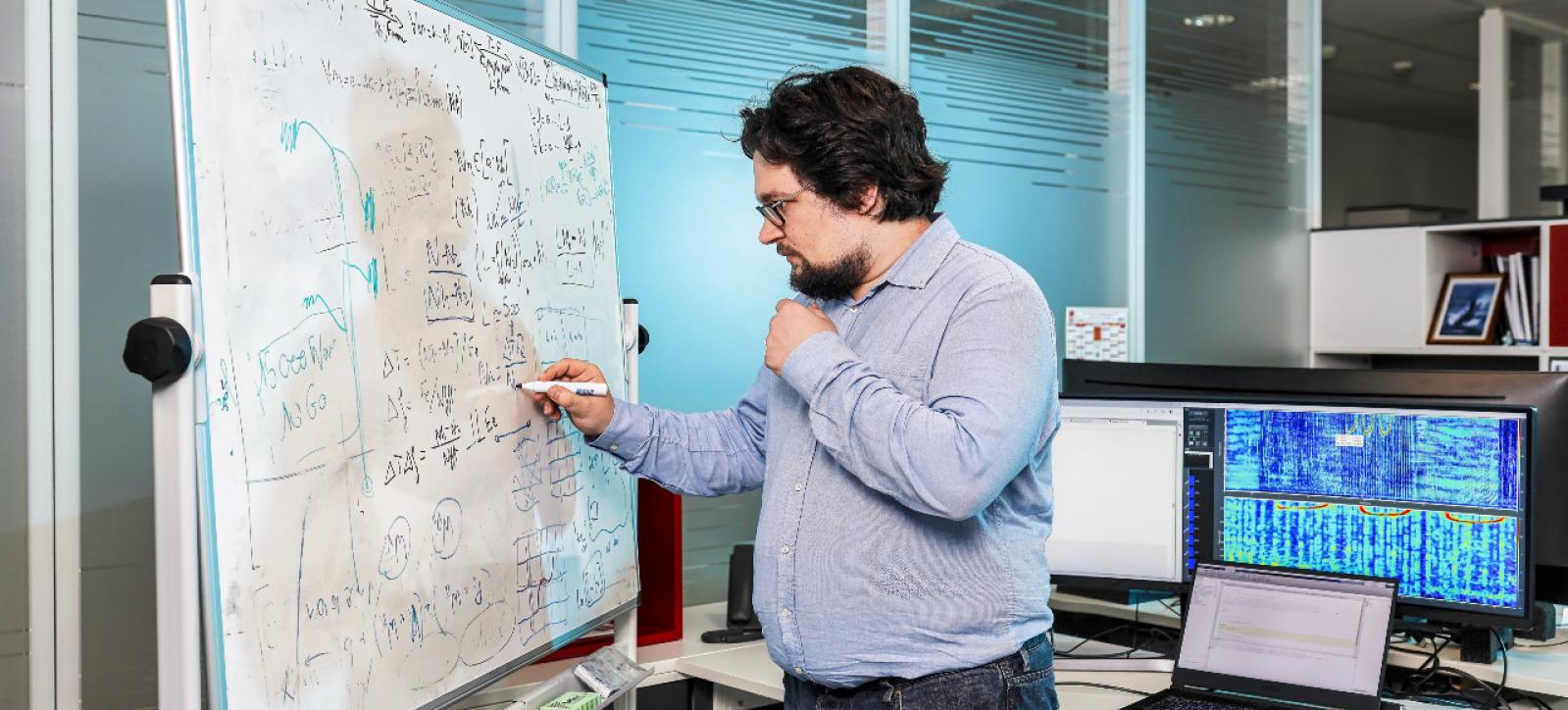Capable of distinguishing blindly the sound of a dolphin from that of a merchant ship, ‘golden ears’ are to underwater acoustic analysis what a ‘nose’ is to traditional perfumery: a challenging trade that requires long training. Moreover, each new generation of submarines widens the spectrum of audio phenomena captured by increasingly sensitive sonars. The need to accompany crews in this task of acoustic recognition is strong indeed.
“My job is precisely to design an AI algorithm, integrated in the ship’s system, that helps them sort sounds, from those that are most dangerous to those that are non-threatening”, explains Alexandre. “Supporting crews means relieving them of tasks that may be repetitive and handling those that are risk-free and reliable. But it does not mean replacing human beings completely”. His work features among the priority use cases identified by Naval Group’s Raid Team, a team dedicated to facilitating the deployment of AI within the group.
A mix of science and technique
Alexandre became a Data Scientist after gaining initial professional experience as a Computer Engineer within one of Naval Group’s subcontracting service companies. Drawn to this particular science of extracting value from a dataset (which is the actual role of the Data Scientist), he then educated himself on the subject with the means available to him. “There was hardly anything out there back then, so I took a few Moocs online and distance learning courses at Stanford University that earned me my certification, which was the best of the best at the time.
Naval Group hired him in 2019 at the CEMIS. “Our algorithms originate from the academic world and allow us to recognise patterns in images and noises in sound signals. I like the combination of academic research and applying it in a practical manner to the crew’s needs. A Data Scientist at Naval Group is not a mad researcher working in a lab, completely disconnected from reality. We have to act as an interface between science and operational need. “This means we are at the crossroads of project management and technique, which is something I really appreciate because I want to continue using this discipline throughout my career.”

